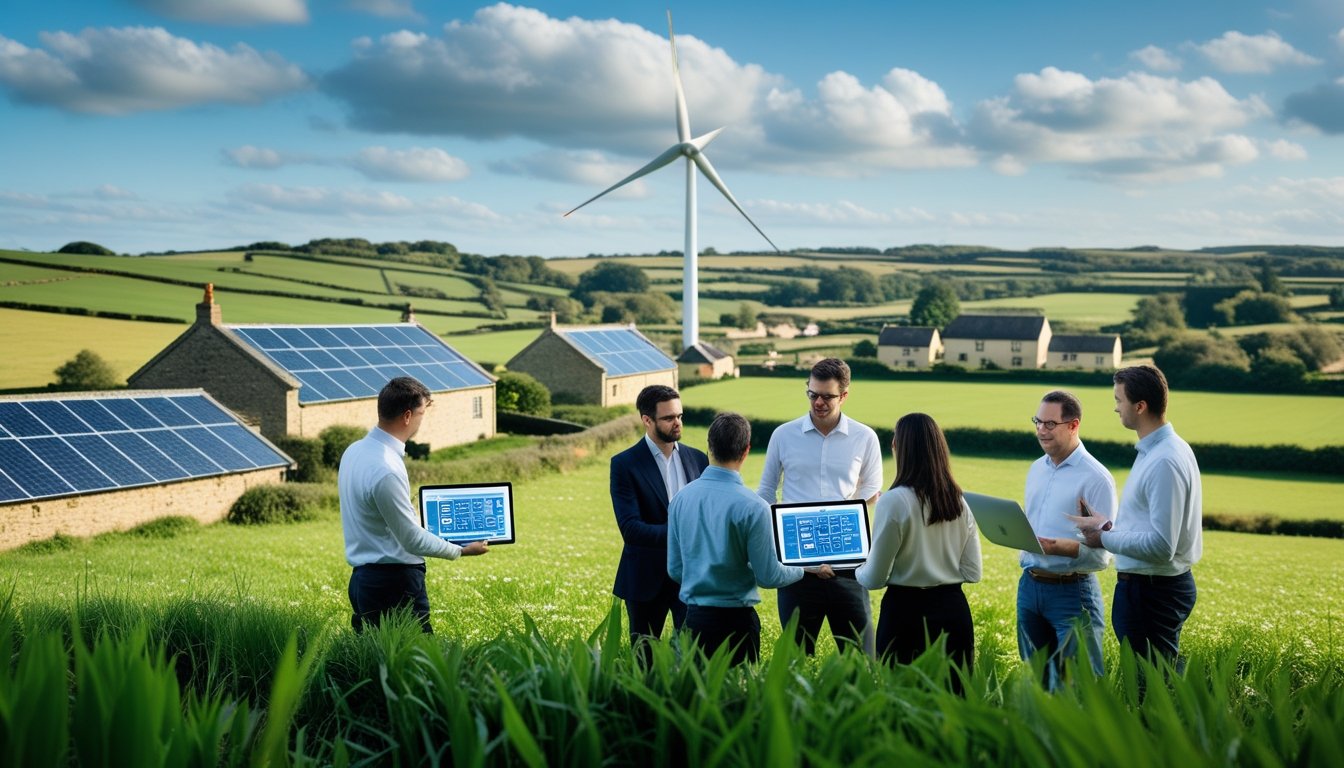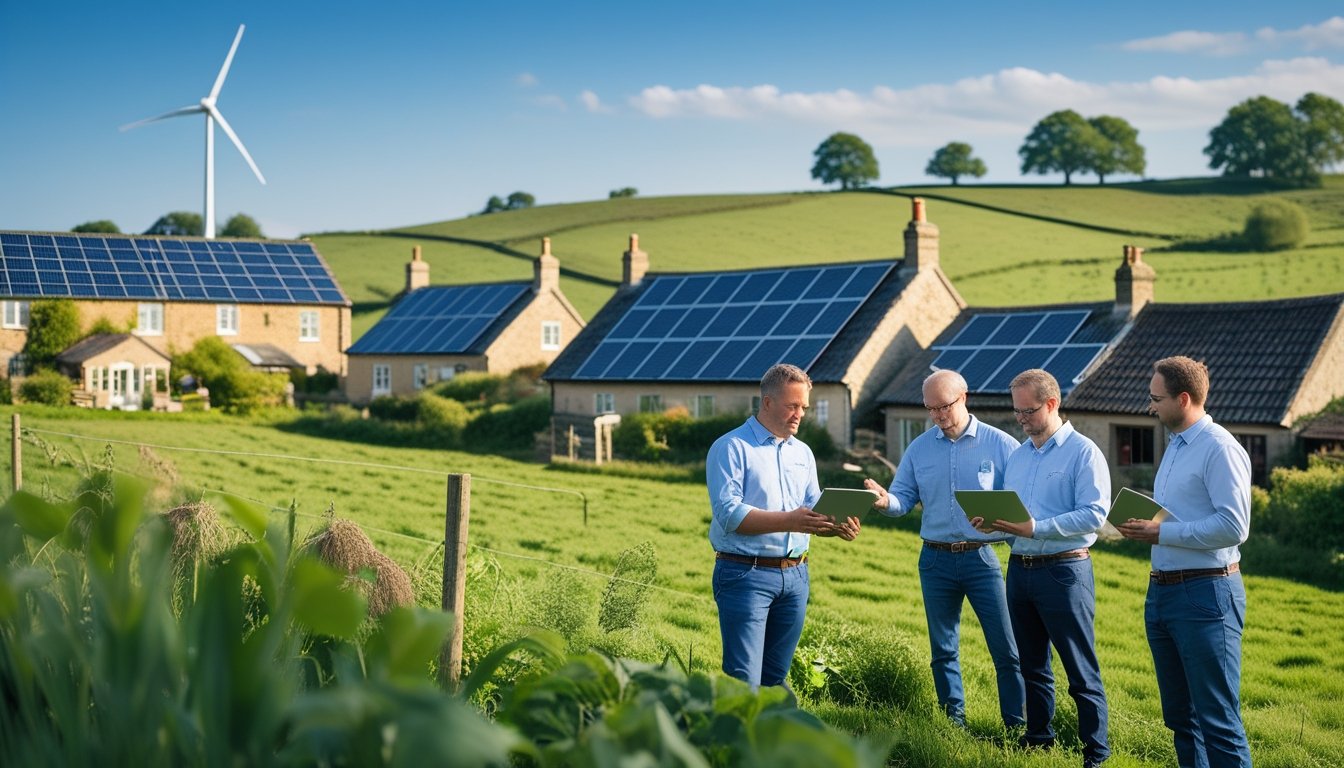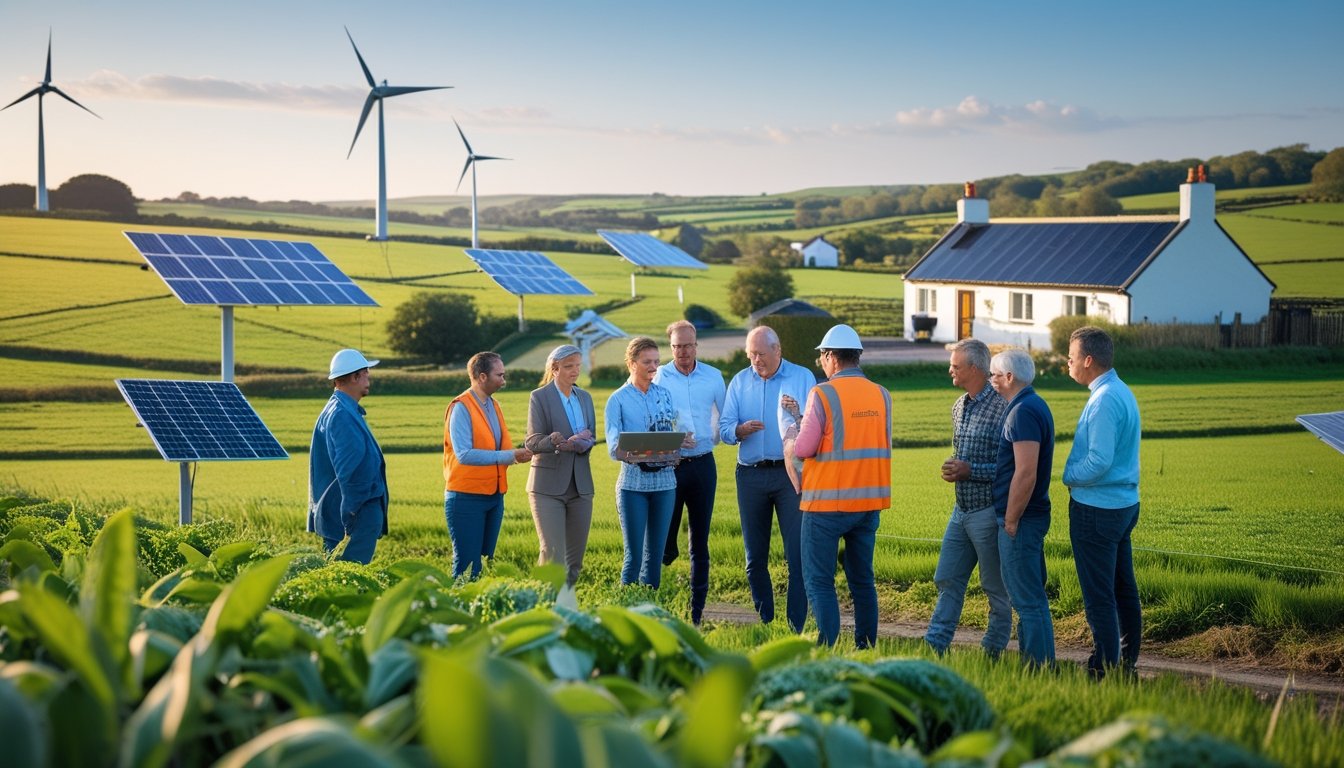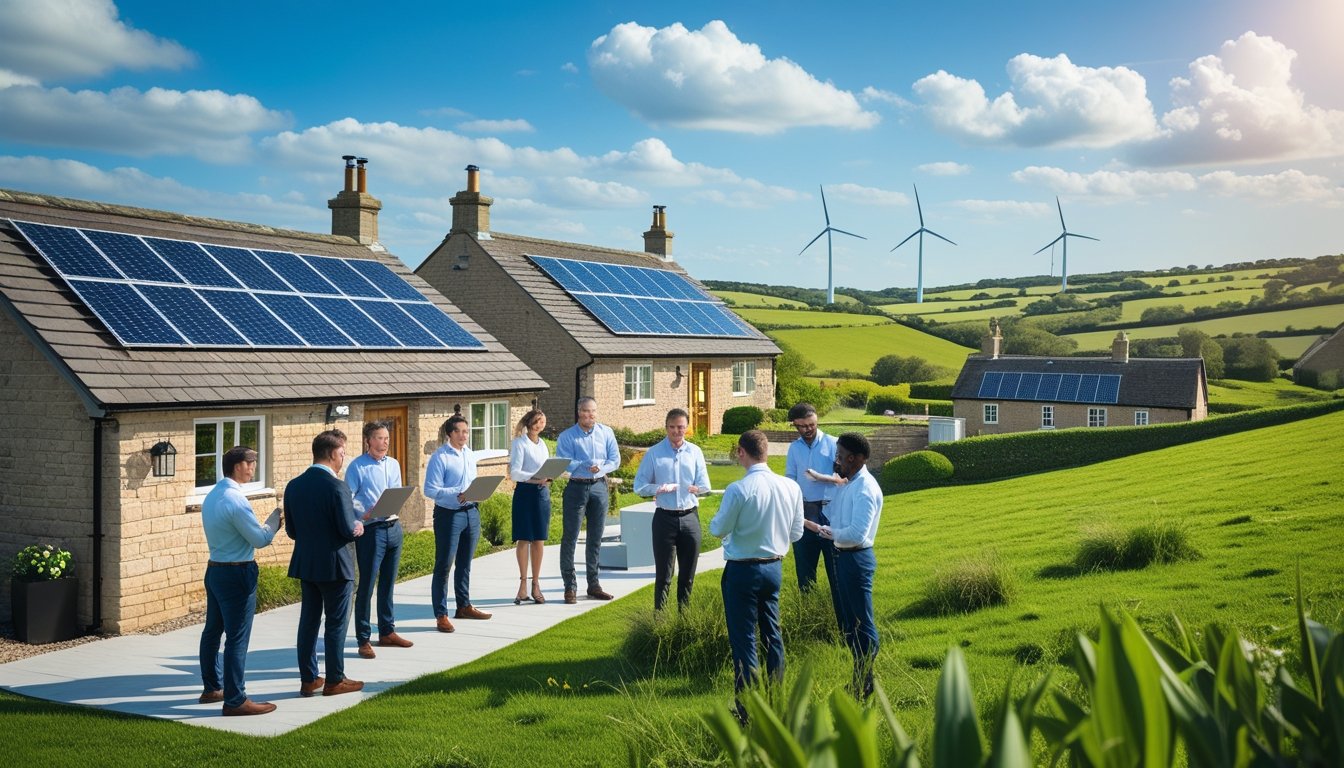Late updated: 07 Jun 2025 12:06
Written by: Oliver Bennett
AI Solutions Advancing UK's Rural Energy Efficiency: Transforming the Countryside's Energy Landscape
Rural UK is a focal point for achieving the nation's ambitious net zero targets by 2050, and artificial intelligence is playing a transformative role in this arena. AI innovations are significantly boosting energy efficiency in rural areas, integrating solar panels and wind farms into local landscapes for cleaner energy solutions. These advancements are powered by the AI Energy Council and other pivotal organisations that ensure technology is optimised for reduced carbon emissions.

The economic and societal impacts of deploying AI-driven energy solutions extend far beyond simple efficiency improvements. By supporting these innovations, we are fostering sustainable growth and creating a greener future for rural communities. The United Kingdom is becoming a leader in this domain, with government backing and substantial investments driving AI research and development to new heights.
Key Takeaways
- AI integrates effectively into rural UK energy strategies.
- Investments in AI support economic growth and sustainability.
- The UK leads in AI-driven energy efficiency innovations.
AI Solutions Transforming Rural Energy Efficiency in the UK

Our advances in AI are paving the way for significant enhancements in rural energy efficiency across the UK. With strategic integration and intelligent design, we're transforming how energy is produced, managed, and consumed, aiming for sustainability and net-zero emissions.
Role of Artificial Intelligence in Advancing Rural Energy Systems
Artificial intelligence is pivotal in revamping rural energy systems. By utilising AI-driven technologies, we are capable of optimising energy production and distribution. Specifically, AI helps predict energy demands accurately, allowing us to adjust the output and reduce wastage. Smart grids powered by AI enable real-time data collection, facilitating quick responses to changes in energy needs and enhancing overall system efficiency.
Innovative AI Applications for Renewable Energy Integration
AI is instrumental in integrating renewable energy sources like solar and wind power into the rural landscape. Advanced algorithms process data from weather patterns to anticipate and maximise energy output. Machine learning fuels this innovation, allowing for predictive maintenance that reduces downtime of renewable energy systems. This ensures a seamless flow of clean energy and contributes to the reduction of carbon emissions.
Optimising the Energy Grid with AI-Powered Analytics
AI-powered analytics play a crucial role in streamlining the energy grid's operation. We leverage these tools to analyse vast sets of data, identifying patterns that inform strategic planning and operational improvements. This optimisation leads to lower operational costs and heightened reliability of energy supplies. By enhancing the grid's adaptability, our AI solutions minimise disruptions and ensure consistent energy availability even in remote locations.
Enhancing Sustainability and Reducing Carbon Emissions
Our commitment to sustainability is supported by AI's capability to reduce carbon emissions significantly. Through strategic planning and advanced AI infrastructure, we aim for an energy transition towards carbon-free solutions. AI monitors and manages energy consumption patterns, guiding us to lower energy use and reduce environmental impact. These efforts align with the UK's net-zero goals by 2050, reinforcing our path toward an eco-friendly future.
Economic and Societal Impact of AI-Driven Energy Efficiency

Integrating AI into energy systems offers significant potential for economic growth and societal advancements. By enhancing energy efficiency, it contributes to reduced costs and supports climate goals, driving a sustainable future through AI innovation and leadership.
Opportunities for Productivity and Rural Economic Growth
AI systems are transforming productivity within the UK's rural regions. With the AI Opportunities Action Plan, we are enhancing agricultural processes, leading to increased yields and efficiency. AI growth zones are facilitating this transformation, serving as hubs for technological innovation.
Investment in AI-driven agricultural technology is fostering economic growth. By automating processes and improving decision-making, rural areas can retain more of their workforce while attracting new talent. Job creation is further supported by government initiatives that focus on sustainable development and tech upskilling.
Improving Resource Efficiency and Reducing Costs
Energy costs pose a significant concern for rural communities. AI-driven resource efficiency is key to tackling this issue. AI technologies help energy producers optimise consumption patterns, significantly reducing waste and cost.
AI systems, such as advanced weather forecasting models, improve our ability to manage and store renewable energy, boosting energy efficiency. By embracing these innovative energy solutions, we not only cut costs but also support sustainable resource management.
Supporting Net Zero Ambitions and Climate Change Goals
Our commitment to climate change goals is reflected in the integration of AI to drive the energy transition. The Net Zero Innovation Portfolio includes AI applications that enhance low-carbon technologies. These technologies are central to reducing reliance on fossil fuels.
Using AI, energy producers can improve the efficiency of their operations, aligning with net zero ambitions. By fostering a shift towards renewable energy sources, AI contributes to sustainable energy management strategies, supporting the government's plan for change.
Future Outlook: AI Data Centres and Clean Energy Leadership
AI data centres present a dual challenge and opportunity. As significant energy consumers, they have the potential to lead in clean energy adoption. Implementing sustainable practices in these centres can pave the way for the UK to become a clean energy superpower.
Investments in battery technology and supercomputing capabilities are aligning with the vision of AI-driven energy leadership. Collaborations with entities like the UK Atomic Energy Authority bolster this ambition, providing avenues for innovation that drive both economic growth and societal benefits.
Frequently Asked Questions

Our exploration of AI solutions in rural UK energy efficiency reveals significant advancements. AI optimises energy management, reduces carbon emissions, and fosters economic benefits in remote regions. Let's delve into specific inquiries about these topics.
How is artificial intelligence being harnessed to improve energy efficiency in rural areas within the UK?
AI technology optimises the use of renewable energy sources such as solar panels and wind farms. It achieves this by predicting energy demand and adjusting generation schedules accordingly, ultimately enhancing efficiency.
What successful implementations of AI-driven energy solutions have there been in the UK's countryside?
In several rural communities, AI systems have been integrated with local energy grids to improve energy distribution. These implementations have proven effective in managing energy loads and reducing waste.
Can intelligent energy systems contribute to reducing the carbon footprint of rural communities?
Yes, by precisely controlling energy production and consumption, AI systems help minimise energy wastage. This leads to lower carbon emissions and contributes to the UK's net-zero goals.
What are the economic advantages of adopting AI for energy management in remote locations of the UK?
AI-driven systems can significantly lower energy costs by optimising energy use and predicting maintenance needs. This efficiency translates into financial savings for households and businesses in rural areas.
How does AI technology assist in overcoming the unique energy challenges faced by rural areas?
AI helps in accurately forecasting weather patterns, essential for optimal use of renewable energy sources. It also improves grid reliability, reducing the impact of energy disruptions.
What partnerships or initiatives are leading the way in integrating AI within the UK's rural energy networks?
Partnerships like the AI Energy Council are crucial in advancing AI technologies. They work with local governments and businesses to ensure successful integration of AI solutions tailored to rural needs.
